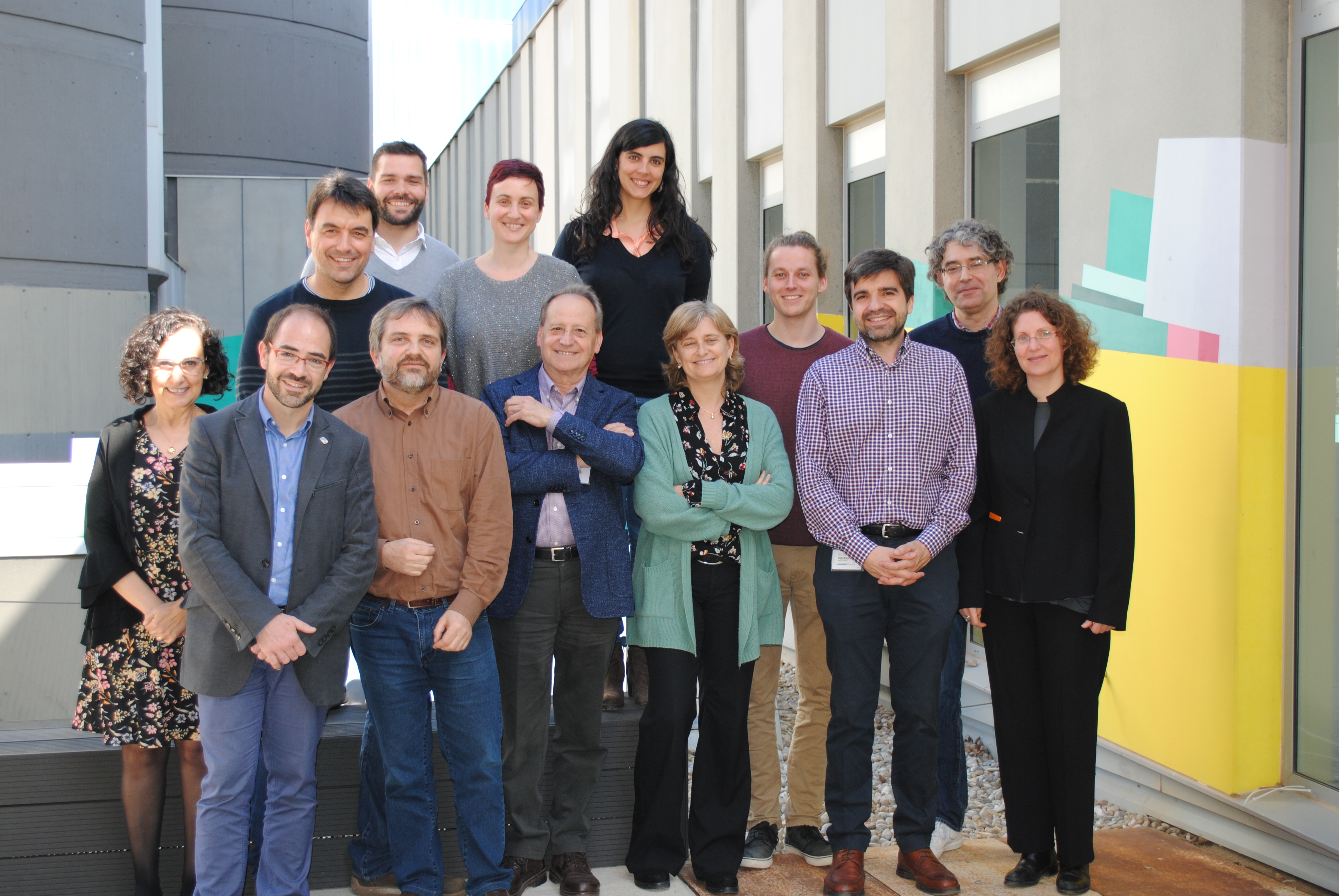
The FBG awards €100,000 for the valorisation of four UB research projects
On 5 March, the FBG awarded the Valorisation Fund (FVal) grants of the Fund for the Promotion of Innovation (F2I). Within this funding programme, each selected project was awarded €25,000, which will be used to valorise projects of the University of Barcelona with a high potential for transfer and impact on our society. The grants of the Valorisation Fund will make it possible to further mature the selected technologies with the twofold aim of taking them closer to market requirements, and of allowing their transfer either through licencing to an existing company or through the creation of a new spin-off.
The projects funded in this third edition were the following:
“TET2 Modulation for Myelodysplastic Syndrome (MDS) and Other Diseases”, led by Dr. Xavier Barril Alonso, Faculty of Pharmacy and Food Science.
Cancer is one of the challenges for medicine in developed countries. Currently, adapting the treatment to the type of tumour and specific patient is one of the most promising strategies. New research at the University of Barcelona (UB) has designed a group of molecules to treat myelodysplastic syndromes (MDS), a diverse group of haematological disorders with a high risk of leading to acute myeloid leukaemia, an aggressive blood cancer for which current treatments are not very effective. In order to confirm the effects shown by these molecules, the FBG has awarded this project a total of €25,000 to carry out a proof of concept.
“Dual Costimulatory Targeting in Psoriasis and Autoimmune Disorders”, led by Dr. Josep M. Grinyó, Faculty of Medicine and Health Sciences, Bellvitge Campus.
The uncontrolled reaction of the immune system is the origin of some diseases such as psoriasis or problems such as graft rejection in transplant recipients. Dr. Grinyó’s team has designed a molecule that inhibits the action of T cells, the mechanism that triggers the body’s immune response. This molecule has potential applications in autoimmune diseases and as an immunosuppressive treatment in solid organ transplants. Researchers have developed a new fusion protein called Hybri2 to stimulate a T-cell inhibitory pathway and, at the same time, to block an activation pathway. The €25,000 awarded will be used for the in vitro study of the immunosuppressive and anti-inflammatory effects of Hybri2 on skin cells of psoriasis patients.
“Super-Fast and Flexible Digital Confocal Microscope”, led by Dr. Mario Montes Usategui, Faculty of Physics.
Confocal microscopes have meant a major advance in microscopy in the field of life sciences, as they provide images of cells, tissues, and small embryos marked with fluorescent probes. Mario Montes and his team have designed a technology that improves the characteristics of traditional confocal microscopes and allows digitizing their operation and multiple image modes, in which the main metrics can be adjusted continuously —resolution, speed, optical sectioning capacity, and phototoxicity, among others— imitating traditional confocal microscopes, but without the associated inconveniences and at a lower cost. The €25,000 will be used to fine-tune the prototype and validate the technology.
“Automated counting of filamentous microorganisms”, led by Dr. Humbert Salvadó Cabré, Faculty of Biology.
The purification of wastewater depends mostly on activated sludge, a suspended biological culture capable of assimilating and removing organic matter and other pollutants from water. Dr. Salvadó’s team has designed a methodology to automate the counting of filamentous microorganisms, a key process for regulating the correct operation of the treatment plant. The new project will automate this counting by means of a prototype and an interpretive software developed from an algorithm created a few years ago by this UB researcher. This prototype will allow to quantify microorganisms in less time and with greater precision, and will also make it possible for plant operators without training in microbiology to take on this task. The €25,000 will be used to build a prototype with a motorised microscope capable of capturing high-precision images and to validate the operation of all the technology in the laboratory.
The Valorisation Fund grants, which offer up to €25,000 per project, are aimed at researchers of the University of Barcelona who lead knowledge transfer projects in which the UB holds ownership or co-ownership of both prior knowledge and technology and the results for which the grant is requested. A total of ten research projects developed at the University of Barcelona applied for a grant this year: five from the Faculty of Physics, three from the Faculty of Pharmacy and Food Science, one from the Faculty of Biology, and one from the Faculty of Medicine and Health Sciences.
This is the third edition of the Fund for the Promotion of Innovation (F2I), a programme endowed with €130,000 that includes two modalities: the Valorisation Fund (FVal)—endowed with €100,000—aims to valorise UB projects with a high potential for transfer and impact on society, and the Mentor in Residence (MIR) programme—endowed with €30,000—promotes the creation and maturation of new spin-offs by hiring a mentor. These grants are supported by the Secretary of Universities and Research of the Department of Business and Knowledge of the Generalitat de Catalunya and are also co-financed by the European Regional Development Fund (ERDF).
![]()
![]()

